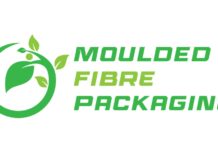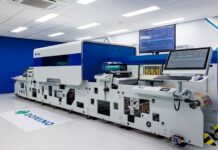Applied DNA Sciences Inc. announced that the Emerging Technology Team (ETT) of the U.S. FDA has accepted the Company into its Emerging Technology Program (ETP) for the molecular tagging of Solid Oral Dosage Forms (SODF).
The ETP serves to help promote the adoption of innovative approaches to pharmaceutical product design and manufacturing and offers technology companies and their pharmaceutical customers the opportunity to discuss, identify, and resolve potential technical and regulatory pathways early in the development and implementation of novel technology.
ETP also affords FDA the opportunity to become familiar with new technologies prior to regulatory submissions. From the ETT’s home within the Center for Drug Evaluation and Research (CDER), it can offer reach into various FDA groups to support programs which may straddle responsible organizations such as with the Center for Biologics Evaluation and Research (CBER). Applied DNA follows into the ETP other industry-leading technology companies who have navigated the simultaneous challenges of compliance and new process innovation such as the first 3D-printing of drug tablets, transforming from batch to continuous processes for manufacturing, and the use of IoT in controlling manufacturing quality.
Applicants to the program are evaluated by FDA on whether the proposed technology has the potential to improve product safety, identity, strength, quality, or purity, or includes one or more elements of quality management (e.g., product design, manufacturing process, testing or process controls) for which the agency has limited review or inspection experience. The ETT promotes early engagement, face-to-face meetings, site visits and pre-approval inspections. Members of the ETT engaged with Applied DNA are likely to participate with the Company throughout the entire development of a customer’s molecular tagging program.
“With the overwhelming majority of domestic drug production reliant on the importation of active pharmaceutical ingredients from overseas sources, there is an underappreciated and pressing need for product security across global pharmaceutical supply chains,” stated Dr. James Hayward, president and CEO of Applied DNA. “We are already aligned with partners that offer us a path to drive industry adoption of our authentication technologies and mitigate participation of counterfeit and adulterated drugs in the legitimate pharmaceutical supply chain, such as, Colorcon, a leader in the development, supply and support of formulated products for the pharmaceutical industry; Videojet, a world-leader in the inkjet printing market; and Schreiner Group, specializing in innovative, functional labels and integrated security solutions across many industries, including the pharmaceutical industry.”
Judy Murrah, Chief Information Officer of Applied DNA., said, “Applied DNA’s authentication technology is a robust, multi-layered platform that complements FDA’s Drug Quality and Supply Chain Security Act serialization initiative. The introduction of an immutable identity for traceability and authenticity to both the dose and the packaging supports product investigations even when the two become separated. It is potentially a game-changer for the pharmaceutical industry. Such forensic data has been used as evidence in European courts to support the conviction of 138 criminals, setting the table in the pharmaceutical industry as support for investigations of product liability, counterfeiting and diversion.”




























